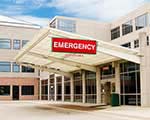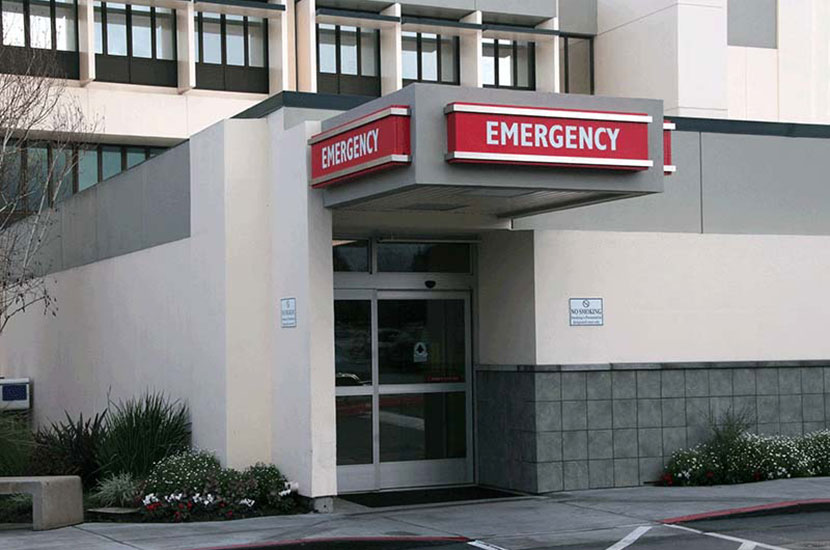Lap Band surgery is attractive because the surgery is relatively easy, its quick, and there is little chance of a serious complication. Even though there is little risk of a serious complication, there is a good chance that you’ll have a complication. Recent studies show that Lap Band patients have a 25% to 50% chance of a complication.
What Is A Complication?
A complication is a concurrent disease, accident, or adverse reaction that aggravates the original disease. In the case of Lap Band surgery, a complication is anything that causes harm during or after the surgery and was unintended. This can be something as mild as indigestion to something more serious like a blood clot.
Possible Complications
While the risk of death is low, the risk of a complication is high. A Belgium study from 2011 shows long term complication rates as high as 50% (Belgium Study). A study from 2013 shows 15 year complication rates as high as 26% (Annals of Surgery). Another study from 2007 shows the late complication rate from Lap Bands at 26% as well (Band V Bypass, Obesity Surgery).
Its important to note that surgical techniques have changed over the last 15 years and these techniques may help reduce these high complication rates. Some surgeons have remarked that the erosion rates in the Belgium study are higher than normal.
The list of possible complications from Lap Band surgery include:
- Constipation: Short term constipation is manageable, but imagine if you were constipated every day? Diet changes and medication can help relieve this.
- Difficulty Swallowing: This is caused by eating too quickly or not chewing your food enough. This can usually be fixed by changing your eating habits.
- Nausea and Vomiting: Nausea and vomiting is one of the most common complications from any bariatric procedure. Drink lots of fluids, eat smaller portions, and follow the guidelines that your surgeon provides.
- Bowel or Stomach Perforations: This usually happens during the surgery and the surgeon can typically correct it without any major issues. A bad stomach perforation may require the surgeon to ‘open’ and increase the size of the incision in order to close the opening. If left untreated a bowel or stomach perforation can be deadly.
- Food Trapping: This occurs in about 2% of the gastric band patients. Food gets stuck in the pouch above the band and never fully makes it past the band. Symptoms may include the feeling of something stuck in your throat. Bad breath may be evident and vomiting can occur. This is typically remedied by deflating the band.
- Acid Reflux (GERD): Acid reflux can be triggered by a tight band. This causes a problem. When the band is tightened it may trigger acid reflux. When its loosened, the reflux goes away but there isn’t enough restriction to cause appropriate weight loss.
- Port Problems (Occurs in up to 20% of patients):
- Port Site Infections: This is an infection of the port that is used to fill and un-fill your Lap Band. Minor infections in this area can be treated with antibiotics. Serious infections of the port can lead to band removal.
- Port Leak: A port leak can cause your band to lose its fill. This results in the band not maintaining the proper fill level. Port leaks usually require a surgery to replace the port or the tubing but generally do not require the band to be replaced.
- Port Flipping: The port, located just under your skin, can flip. If this happens your doctor will not be able to adjust the fill level of your band. This can be corrected with a relatively simple procedure.
- Port Migration/Dislodgement: Your port can move from its original location. This can make it hard to locate and harder to properly fill your Lap Band. If this happens a simple procedure, usually under local anesthesia, can fix it.
- Hiatal Hernais: Hiatal hernias are often repaired during your initial Lap Band surgery but there is a higher incident of hiatal hernia after band surgery. Hiatal hernias occur when your stomach protrudes through the diaphragm. They can be uncomfortable and cause enough of a problem to warrant surgery.
Serious Complications
Serious complications from Lap Band surgery include anything that can lead to more serious issues. These often require re-operation.
- Blood Clots: Blood clots are a serious risk after surgery. Overweight patients have a higher risk for blood clots. To prevent blood clots, most patients are given blood thinners and instructed to start walking the first day after surgery. Compression stockings and compression devices are used to prevent blood clots during and after surgery. If a patient develops a blood clot, there is a risk of a pulmonary embolism.
- Gastric Leak: A gastric leak is a leak in your stomach during or after the surgery. This can be very serious. The fluid that leaks from your stomach can cause a severe infection, which if untreated can cause shock and death.
- Esophageal Dilation (Occurs in up to 14% of patients): This occurs when your pouch is placed incorrectly during surgery or it is filled too tightly. Food puts pressure on the walls of the esophagus and can eventually cause a pouch to form. This can lead to vomiting, nausea, and acid reflux. If lowering the fill in the band does not help, a second surgery may be required.
- Pouch Dilation (Occurs in up to 15% of patients): This is similar to esophageal dilation except your stomach pouch (area above the band) dilates as a result of pressure from food and liquids over time. This can cause vomiting and acid reflux. Lowering the fill in the band can help with the symptoms but a surgery may be required to slightly move the band.
- Band Issues
- Erosion: (Occurs in as few as 2% and up to 9% of patients) This happens when, over time, the band rubs against the stomach or esophagus and either erodes the wall of the stomach or erodes the wall of the band. The band stops working and food flows unrestricted. This requires the band to be removed with a new surgery.
- Slippage: This happens when the band ‘slips’ down the stomach. The pouch above the band becomes too large. This can cause vomiting and reduce the amount of weight loss. Typically, this requires re-operation.
- Leak: (Occurs in 1 to 4% of patients) The Lap Band is a man-made device and weaknesses in the plastic can lead to a leak. If you notice the amount of food you are able to eat increase over time after a band fill, then you may have a leak. To diagnose a leak, your surgeon will inject a dye into your band and then perform an X-Ray to see if the fluid is leaking. If you do have a leak in the band, its likely you will need a re-operation.
- Intolerance: There are a small amount of people who will have difficulty with a foreign object in their body. Once other complications are ruled out and the patient continues to experience vomiting and a general feeling of uncomfortableness, then the band may have to be removed.
- Erosion: (Occurs in as few as 2% and up to 9% of patients) This happens when, over time, the band rubs against the stomach or esophagus and either erodes the wall of the stomach or erodes the wall of the band. The band stops working and food flows unrestricted. This requires the band to be removed with a new surgery.
Will I Have A Complication?
There is a chance that you might have a complication. The short-term complication rate of Lap Band surgery is lower than gastric
 bypass surgery. But the long term complication rate is significantly higher.
bypass surgery. But the long term complication rate is significantly higher.
Remember, your Lap Band is for life. While your band can be removed, its not easy to remove. It does require a second operation that is often more difficult than the initial band operation.
Will I Need A Second Operation?
According to long-term gastric banding studies, there is a decent chance that you will need a second operation. Some studies indicate the chances of re-operation are as high as 37% (10 Year Lap Band Complication Rate Study).
Why Do People Have A Second Operation?
There are two reasons people have a second operation.
- To remove or fix the band (due to any of the complications above).
- To remove and perform a second bariatric surgery (due to a lack of adequate weight loss from the Lap Band).
Should I Have Lap Band Surgery?
This question depends on many different factors and varies from person to person. We suggest taking our Bariatric Surgery Selector Test to help determine which procedure is right for you. As always, discuss your decision with your bariatric surgeon.

